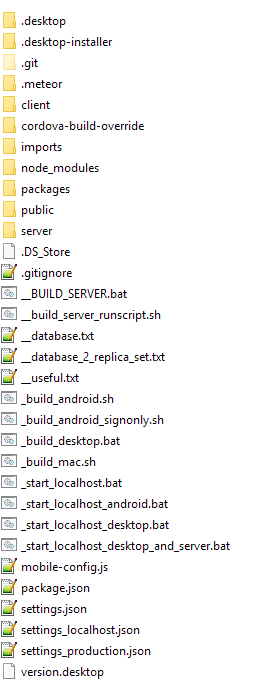Thanks @martineboh
I can answer this for you:
1) lobby;
Meteor
The idea of a lobby in Meteor doesn’t really exist by natural useage. I suppose if you were running multiple server instances because your CPU load was insane, as 10,000 players we online, you would split your servers up. This could be a “lobby”.
Of course, you can build this as part of your app because you want to, for what ever reason. Take a game like Counter Strike for example, it sets you up in a lobby, runs you through a game, and destroys the lobby. This is by design. But you can also technically do 10,000,000 connections and not need a lobby.
Meteor does NOT do peer to peer connections (although you could hybrid it, which I’ve attempted).
WebRTC
Web Real Time Communications is a lobby based technology that on the surface kind of looks like what Meteor does. A signal server is used to connect IP address to another IP address. Then you can even turn the signal server off - and the two systems are still connected to each other. It’s a up-and-coming technology already in many places for things like Facebooks video chat.
Food for thought as you do your research.
- synchronous multi round games;
I have a demo of WebRTC Star Commander for something like a multi round game. I plan to release Star Commander War Games with this exact idea. Real time P2P combat for my game. My previous project (skyrooms, now closed), used Meteor + WebRTC to deliver video streaming group conferences, resumes, business cards, project management. I took it to Dragons Den, they weren’t interested, so I left that for SCO, my new game.
- exist survey; and at the same time
- following the best practices suggested by the guide (or using Meteor 1.4+ in general).
Not sure what you mean here. But I will tell you that Meteor is an unforgiving, bitch of a platform. I have a lot of love for it; but I have a lot of hate too. Mostly because I didn’t follow EXACTLY the instructions, but also because some stuff in Meteor doesn’t work 100% - and also that moving from your loving localhost:3000 to a domain is a massive under taking, unless you use their pre-existing Meteor Galaxy system. But even still, it doesn’t give you simple things like File Storage - or even hosting a database. You have to pain stakingly create a MongoDB account some where, which is free to start, then $200 bucks a month for a simple server. So I built my own custom hosting architecture. It’s a friggin night mare.
But, in the end, Meteor seems to live up to it’s brands mission and vision - you can see www.StarCommanderOnline.com “The Meteor MMO” in action. I’ve some-what easily ported it to PC and Android, IOS is easy too, but takes some trickery.
If you want to chat on a conference, let me know. I’d be happy to be named in a study 


